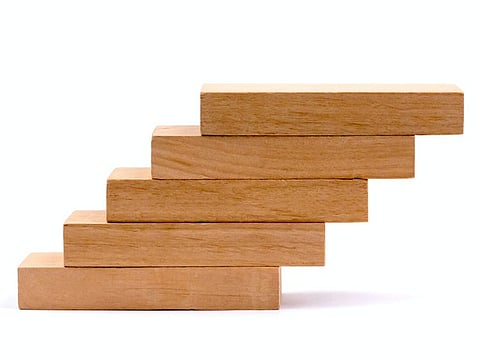Why India's upper castes fear a caste census?
Caste census is no longer tenable. India needs real data to address caste inequality

Imagine your father is a goldsmith in a village in north India. For generations, for centuries if not millennia, your family has been working as goldsmiths.
This isn’t mere inheritance. A social system called caste has defined you even before you are born. You will just be working on gold ornaments, earning a pittance, not owning land. You are meant for this.
You are not meant to get any significant education, because that is a preserve of the upper castes. You can’t marry a girl you like because caste has defined lanes on the highway and you must drive in your own lane.
Education, modernity, modern transport and above all the freedoms given by the Constitution of India are all working to dismantle these lanes. What has particularly helped is reservations. They have uplifted millions of Dalits and OBCs, the middle castes. They are now less dependent on feudal dominant castes than they used to be.
But the goldsmith’s son has a problem. His Dalit classmate will rise up the ladder of opportunities with the help of reservations and special scholarships. His other OBC classmates, such as Yadavs, is better off than him. With tuitions and family connections in bureaucracy, he will escape village life too.
The Brahmins and other upper castes have already migrated to prosperity. Some live abroad. The goldsmith’s son has the least access to aid and opportunities today.
Opposing reservations
There was a time when a Dalit, subjected to ‘untouchability’ by the same social order, couldn’t rent a house in Pune because he was Dalit. His name was BR Ambedkar. He wondered if upper castes practice untouchability, why will they give him a job or an equal place in a college?
Those who oppose reservations in government jobs and college seats speak of merit, without accounting for the inequality of opportunity. They think reservations are only about economic upliftment. Breaking news: reservations are not a poverty mitigation programme.
They are an anti-discrimination measure. They are meant to make up for a long history of discrimination and denial of rights. They are meant to ensure that a room full of meritorious people doesn’t all have familiar comforting surnames.
Upper caste elites claim that lower castes who have gained economic upliftment should not be given further benefits. It is with this logic that the concept of “creamy layer” was introduced to deny reservation benefits to the prosperous among the OBCs.
Further, a national commission for OBCs is supposed to conduct a study every ten years to see which OBC community is doing well and should be excluded from benefits.
They’re meant to measure education and economic prosperity levels of communities. But they’re a toothless body, unable to carry out such an exercise.
For clarity on these issues, we need a caste census. Upper castes who think merit should be the only criteria for anything, often point out that we don’t have enough data to justify arbitrary reservations for communities. It’s all about politics and vote-banks. But the very same merit-wallahs also oppose a national caste census.
A previous attempt at doing a caste census went nowhere. Considering we have so many welfare policies based on caste, there is absolutely no justification to deny a caste census.
A priviledged minority
The only reason why privileged elites oppose a caste census is because it will reveal the bitter truth about just how privileged a small minority of upper castes are.
This privilege is not incidental. Caste inequality needs social justice. A country that measures religion in its census has no good reason to not measure caste. Those who think this will only promote caste divisions further, may be given the option of saying ‘casteless’ when asked.
A deep dive into the final data will reveal, I am sure, that these casteless people are a very small fraction of the population, and they’re all upper caste elites in the top economic layer of society.
A caste census will solve many problems. It will give us a real basis to determine nuanced reservations for various communities. It will tell us which communities from which regions have benefited from reservations and which have not.
The main census already tells us, for example, the socioeconomic profile of rural versus urban, men vs women, Hindu vs religious minorities. It would help us immensely if we added caste to this matrix.
We might then have nuanced data telling us whether upper castes in villages are getting left behind as compared to ‘lower’ castes in cities? The use of reservations as a political tool could be addressed by actual data, not competing claims.
As demands for a caste census grow, the ruling Bharatiya Janata Party will be in a dilemma. Its core base is upper castes but the party has successfully won over the OBCs.
As unemployment and economic pressures take their toll on the poor, OBC groups will put renewed pressure to get more out of reservations. The BJP is doing what it can to address these demands, without alienating its upper caste base.
But caste census is a tough ask. The upper caste base won’t be happy. They want to continue perpetuating the myth that their education, talent, prosperity has nothing to do caste, just their innate ‘merit’ and hard work.
When a caste census reveals how few the upper castes are in number, it will expose how dominant they are in all spheres. If the caste census tells us upper castes are only, say, 20%, it will bolster demands that the cap of 50% on reservations should be lifted.
Today we have effectively 50% reservations for upper castes who like to call themselves “general”. This generalised privilege needs the mirror of real data.








